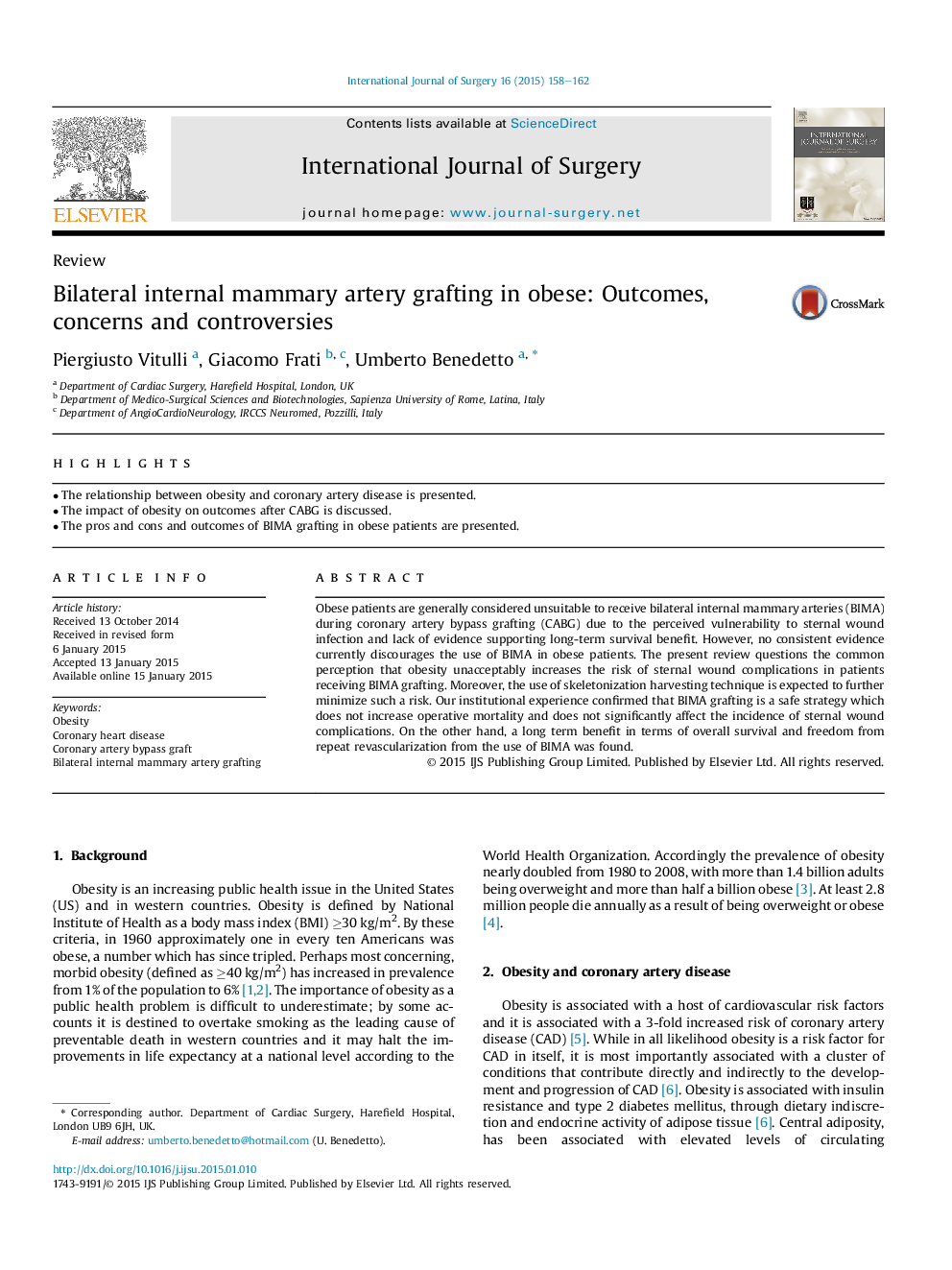| Article ID | Journal | Published Year | Pages | File Type |
|---|---|---|---|---|
| 4285896 | International Journal of Surgery | 2015 | 5 Pages |
•The relationship between obesity and coronary artery disease is presented.•The impact of obesity on outcomes after CABG is discussed.•The pros and cons and outcomes of BIMA grafting in obese patients are presented.
Obese patients are generally considered unsuitable to receive bilateral internal mammary arteries (BIMA) during coronary artery bypass grafting (CABG) due to the perceived vulnerability to sternal wound infection and lack of evidence supporting long-term survival benefit. However, no consistent evidence currently discourages the use of BIMA in obese patients. The present review questions the common perception that obesity unacceptably increases the risk of sternal wound complications in patients receiving BIMA grafting. Moreover, the use of skeletonization harvesting technique is expected to further minimize such a risk. Our institutional experience confirmed that BIMA grafting is a safe strategy which does not increase operative mortality and does not significantly affect the incidence of sternal wound complications. On the other hand, a long term benefit in terms of overall survival and freedom from repeat revascularization from the use of BIMA was found.
